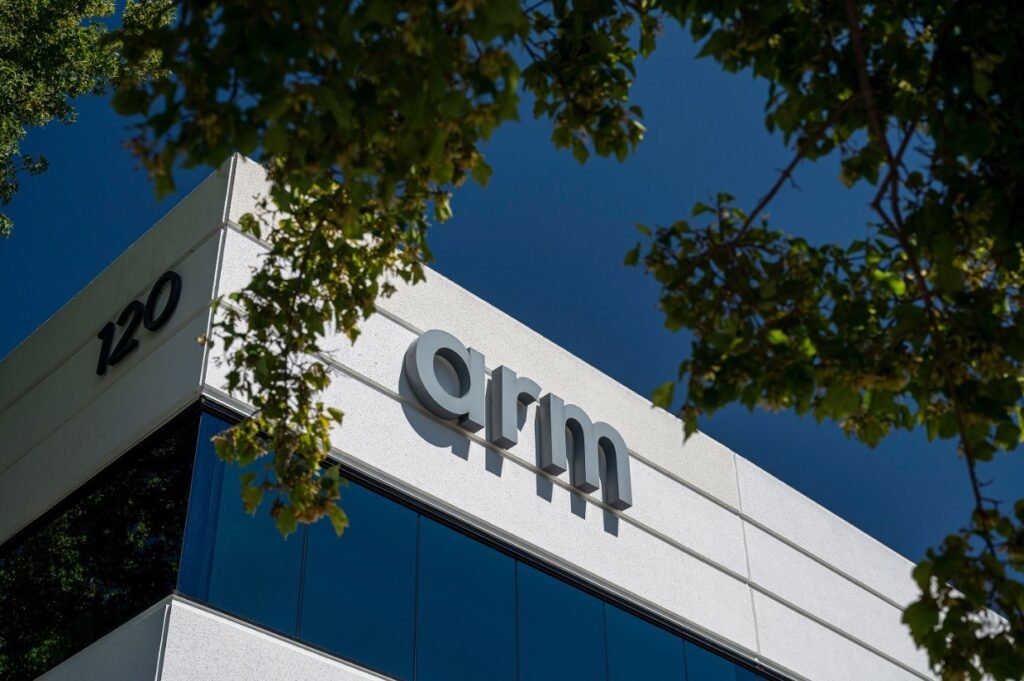Arm Holdings, the British chip designer that powers most of the world’s smartphones, made a strong debut on the Nasdaq stock exchange on Thursday, after raising about $4.9 billion in its initial public offering (IPO).
The company, which is majority-owned by SoftBank Group, sold 95.5 million American depositary shares (ADS) at $51 each, the top end of its marketed range, giving it a valuation of $54.5 billion. The IPO was the largest in the US since electric vehicle maker Rivian Automotive’s $13.7 billion offering in October 2021.

Arm’s shares opened at $56.10, up 10% from the offer price, and climbed as high as $61.66, a 21% increase, before closing at $60.50, a 19% gain.
Arm attracts strategic investors and retail traders
Arm’s IPO attracted strong demand from both institutional and retail investors, who were keen to get exposure to the company’s chip designs that are used in artificial intelligence (AI) and machine learning (ML) applications.
According to Arm’s regulatory filing, some of the world’s leading tech firms, including Apple, Google, Nvidia, Samsung, AMD, Intel, Cadence, Synopsis and Taiwan Semiconductor Manufacturing Company (TSMC), expressed interest in buying about $735 million worth of Arm shares.
The company also lured in retail traders seeking exposure to the AI trend. The chip designer garnered the most buy orders on Fidelity’s trading platform Thursday, with upward of 20,000 purchase orders.
Arm faces challenges and opportunities in the chip market
Arm’s IPO comes at a time when the global chip industry is facing supply chain disruptions, geopolitical tensions and regulatory scrutiny.
Arm does not make chips itself but licenses its technology to chipmakers who pay royalties and fees for using its architecture. The company relies on royalties and licensing for most of its income.
Arm said in its prospectus that it is “particularly susceptible to economic and political risks” related to its exposure to China, which accounts for about a quarter of its sales. The company also warned that it could face antitrust investigations or litigation from competitors or customers.
On the other hand, Arm also sees opportunities to grow its market share and revenue in emerging areas such as data centers, cars, large language models, generative AI and autonomous driving. The company said it expects the total market for its chip designs to be worth about $250 billion by 2025.
